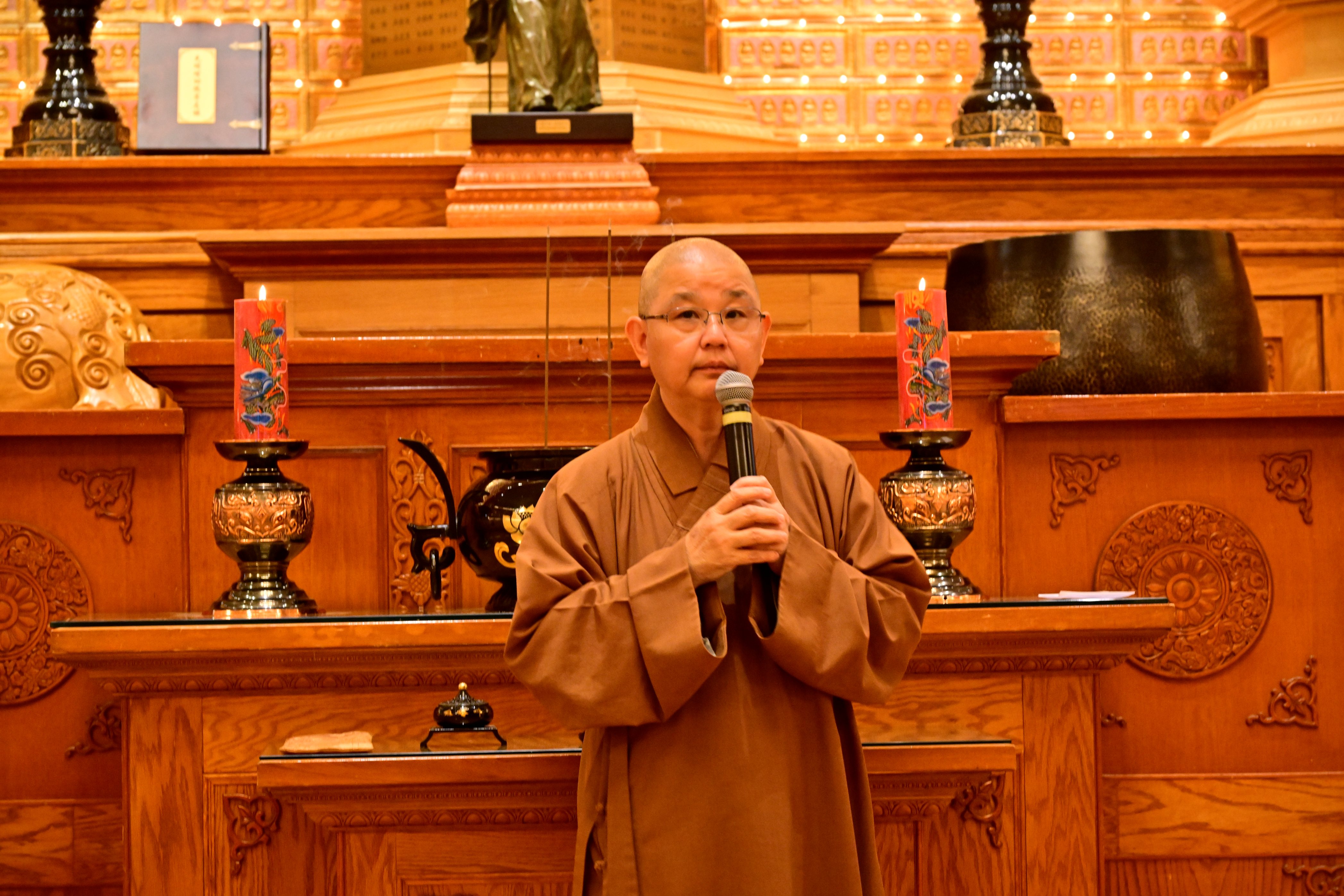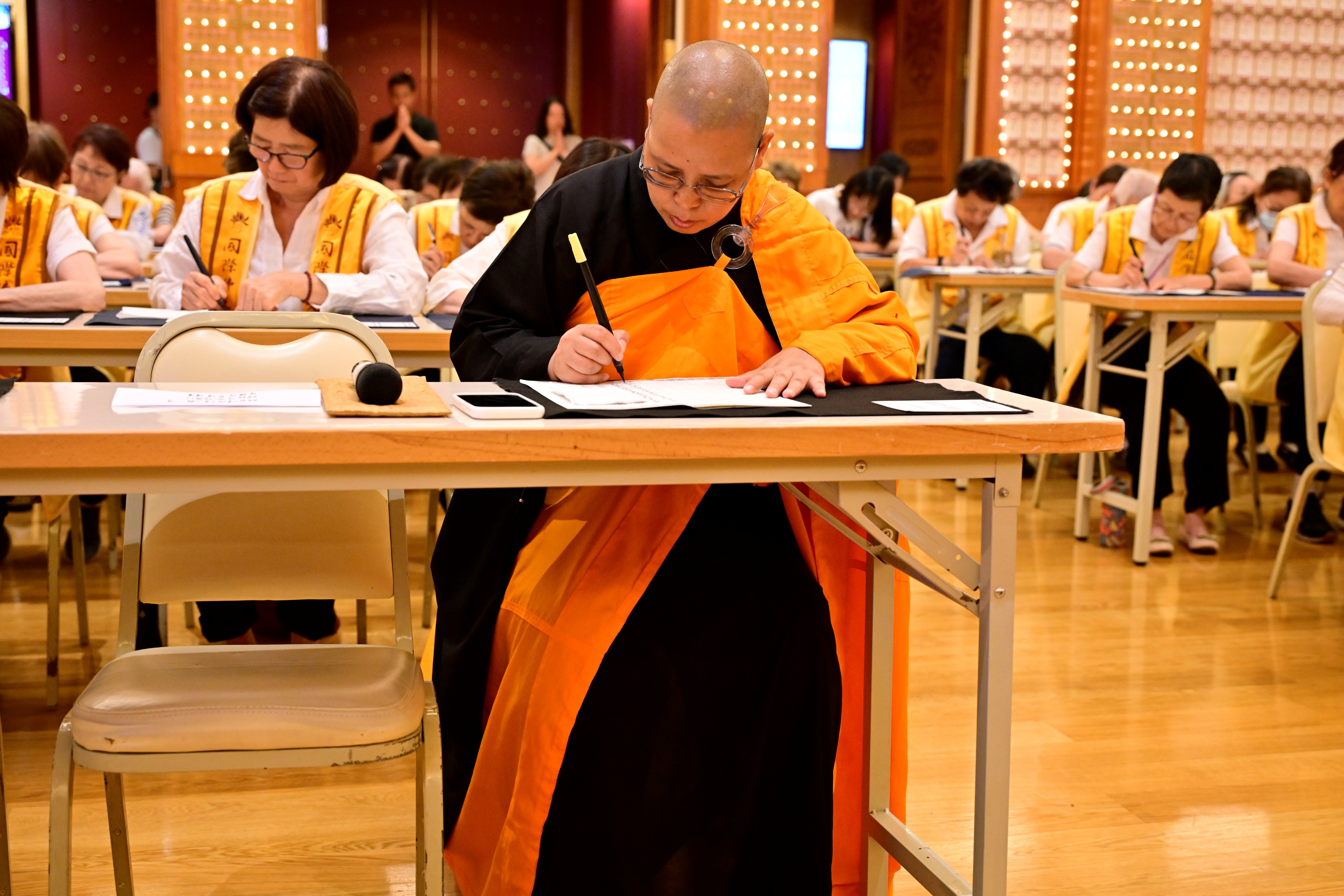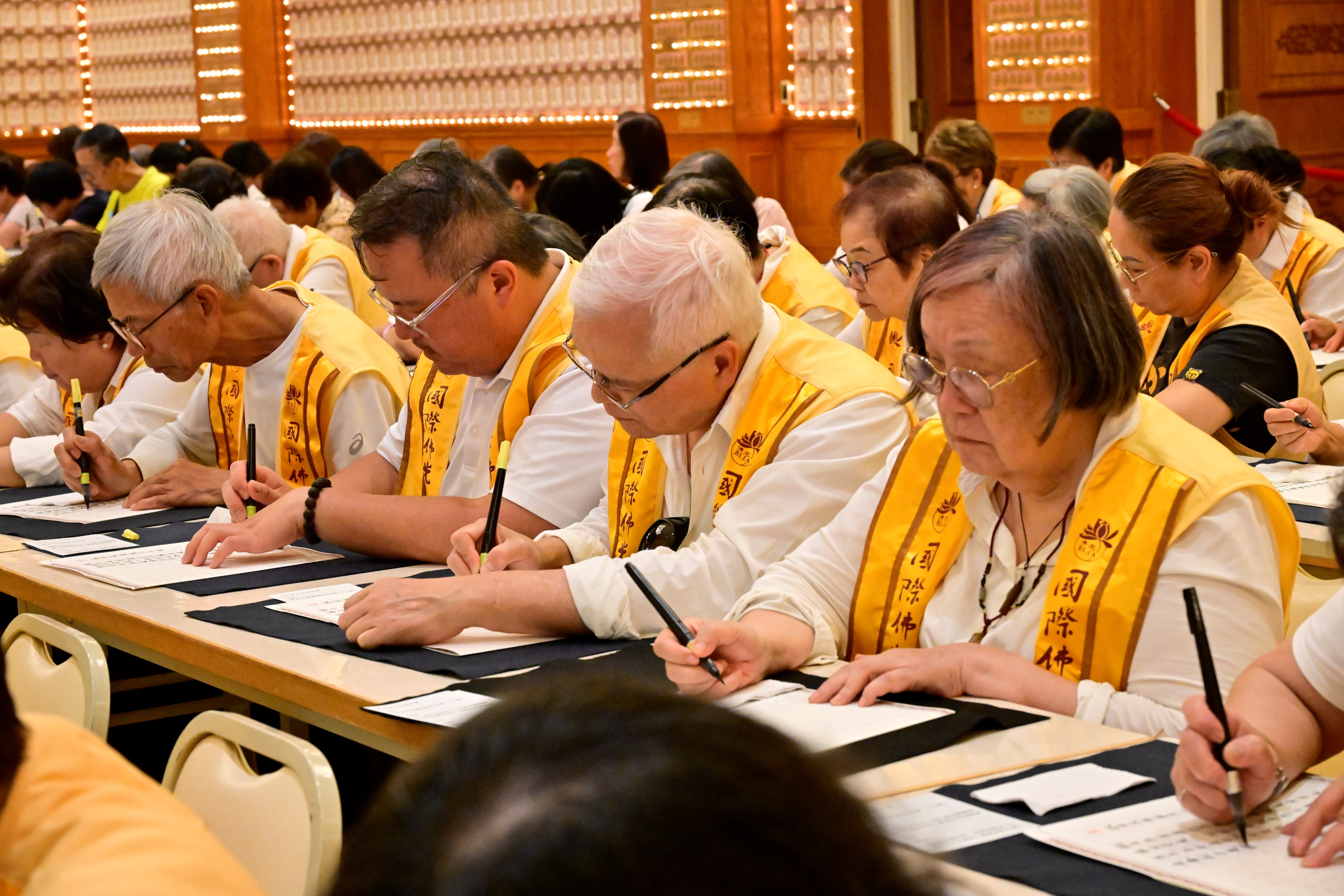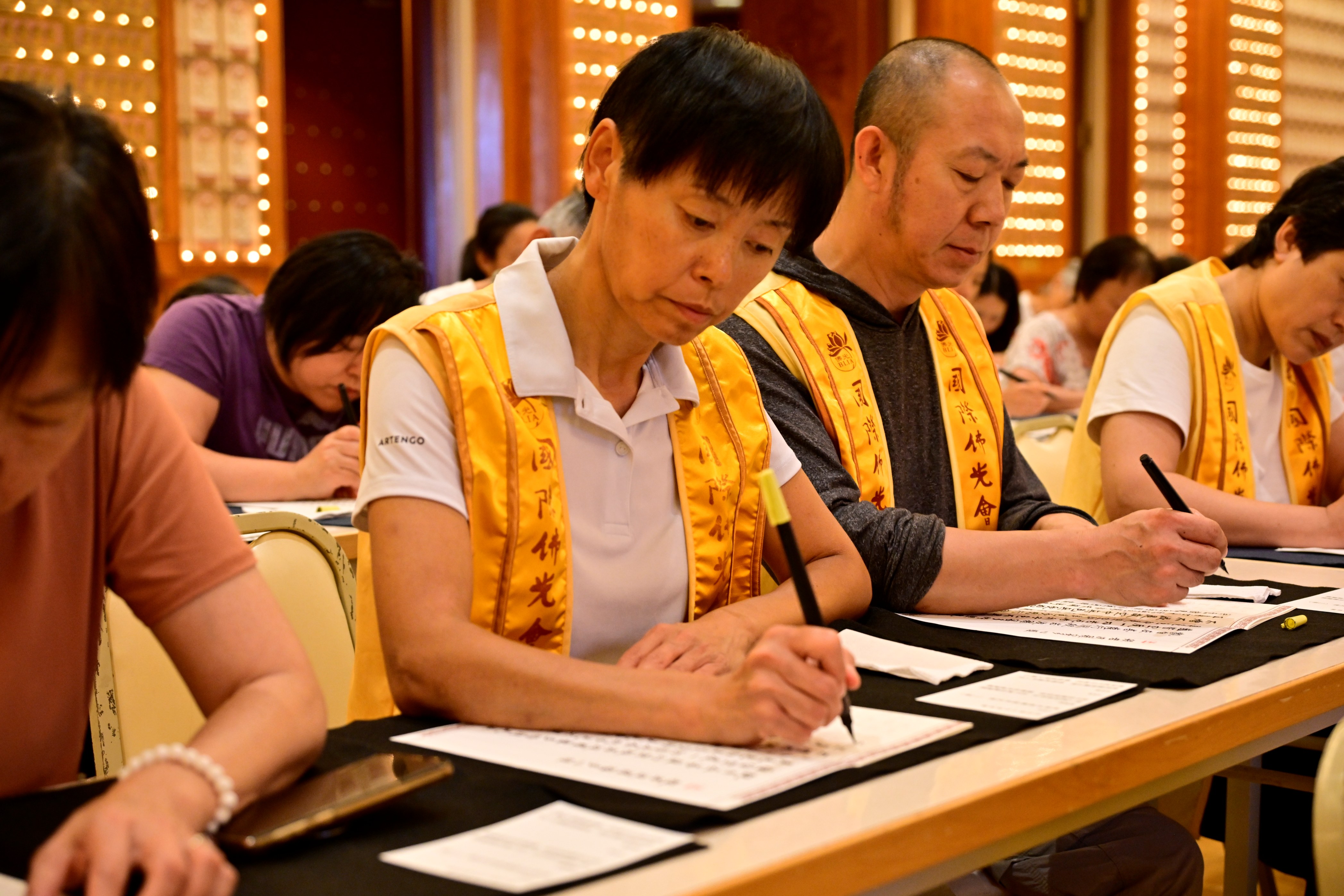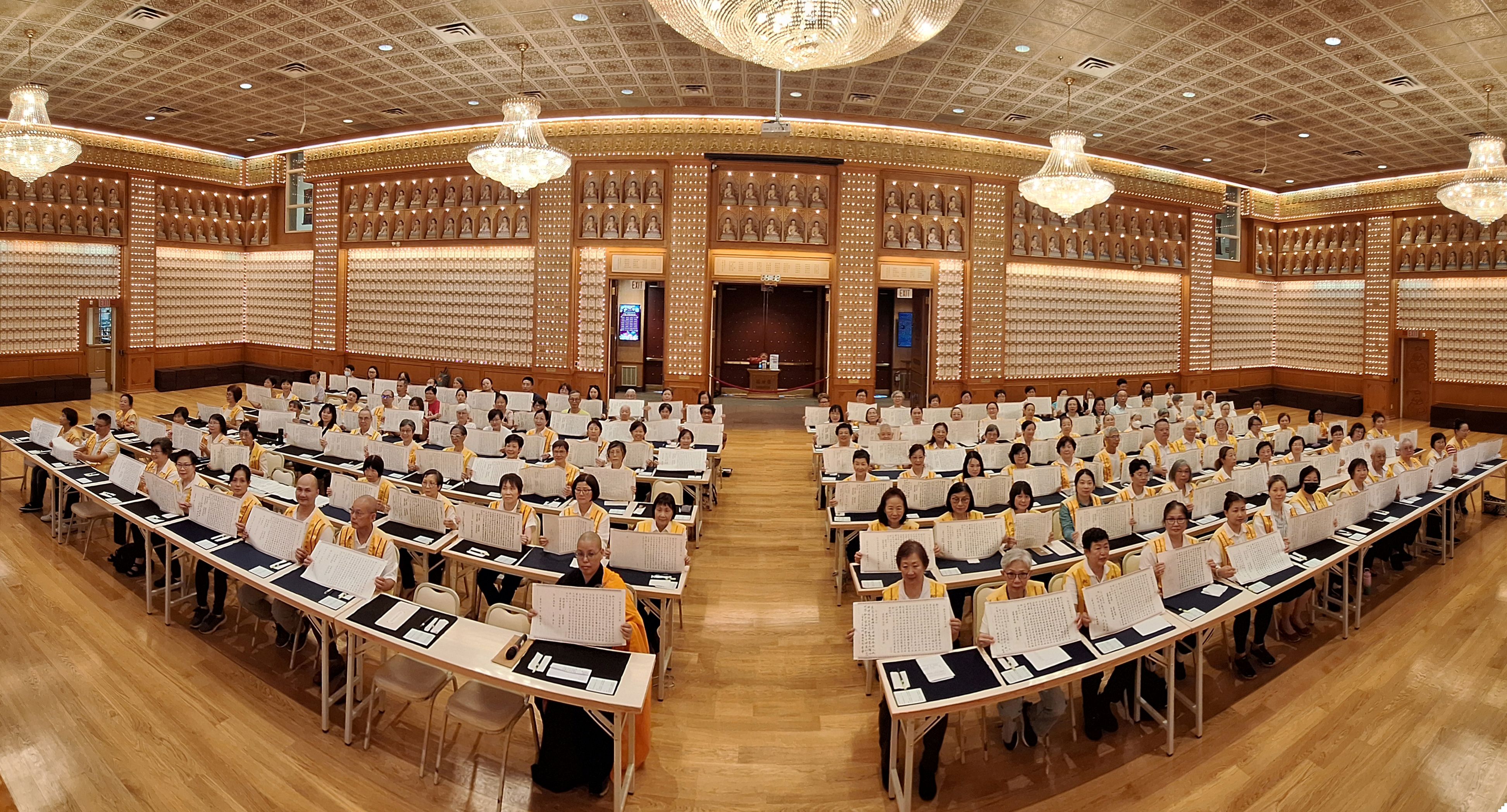
On Sunday, July 13, the four Mississauga subchapters of the Buddha’s Light International Association (BLIA) Toronto Chapter jointly hosted a Sutra Transcription and Cultivation Event at Fo Guang Shan Temple of Toronto. A total of 151 members and devoteesparticipated, joining together to calm their minds and experience the essenceof Buddhist practice through the mindful act of copying sutras.
This was the second joint cultivation event organized by the Mississauga subchapters this year. Venerable Chueh Fan, Abbess of Fo Guang Shan Toronto, delivered a Dharma talk emphasizing that sutra transcription is more than simply writing, it is a method of purifying body, speech, and mind. She encouraged participants to begin their practice with ethical conduct, deepen wisdom, and strengthen right mindfulness. Through the careful transcription of each word, practitioners can observe their thoughts and cultivate inner clarity and awareness. “Right mind leads to right characters,” she noted, encouraging everyone to use each stroke as a moment of mindfulness and self-purification.
Attendees also viewed a video teaching by the founder of Fo Guang Shan, Venerable Master Hsing Yun, titled How to Cultivate. In it, Venerable Master Hsing Yun taught: “Cultivate body, speech, and Buddha mind; cultivate self, others, and harmony; cultivate at all times, in all places, and through silent action.” Venerable Master’s message reminded participants that true cultivation goes beyond rituals, calling for the integration of the Dharma into everyday life. Many expressed how deeply they were moved, recognizing that spiritual growth begins within and extends outward to benefit others.
The transcription session was led by Venerable Ru Zhong, who guided participants in copying the Heart Sutra. She encouraged everyone to stay fully present and treat each stroke as a form of meditation. She explained that sutra transcription is both a spiritual practice and a way to transmit the Dharma—an opportunity to reflect inwardly and awaken compassion and wisdom.
Participants shared that the event deepened their understanding of Buddhist practice—not as a formality, but as a path of self-transformation and a way to live the Dharmain daily life.

